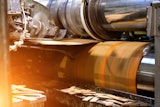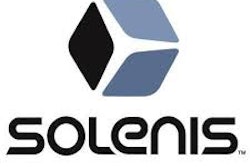Processing thousands of bars every minute, bar lines are one of the packaging world’s most impressive technological feats in the food industry. They can handle huge quantities of irregularly sized and formed products, and are being run at higher and higher speeds, further boosting output for manufacturers.
In addition, the packaging industry is also focusing on increasing the cost-effectiveness of their machines. By hunting down sources of errors and eliminating them, food manufacturers can minimize downtime, reduce waste and bottlenecks. Cutting changeover times and avoiding operator errors are two ways to achieve this.
Product safety and reduced waste are the key to success
Bar packaging equipment that features hygienic design contributes to reducing product losses. Product breakage and leftovers can clog a system and greatly compromise hygiene. These issues can be avoided by harmonizing the interfaces between the different components of the bar production lines, eliminating opportunities for bars to catch and crumble and ensuring a reliable production process. By simplifying and reducing moving parts, friction and breakage can be further avoided.
Eliminating these sources of errors also lowers the risk of cross contamination, which is particularly important with regards to meeting food safety standards, increasingly expected by consumers and retailers. This requirement is also met with the corresponding bar line. With easy access and visibility of the line the operator recognizes whether cleaning is necessary. One criterion is smooth surfaces with no hidden edges and a tool-free disassembly, so the parts are easily and quickly be cleaned.
Avoiding the queue
One major cause of downtime and production losses is operator error. Reducing downtime, both planned and unplanned, is essential for overall productivity to be maximized. In addition to being user-friendly, the system must also enable quick changeovers to new product formats.
The most common operating errors in bar production occur during film changes. Preparing these manually usually takes an operator several minutes. With traditional flow wrappers, the splicing process reduces output. Next generation flow wrappers feature a high-performance splicer (HPS) that merges both films automatically without slowing production speeds. The machine recognizes when a new film is required and initiates the splicing process, merging the new film with the old film via the help of a swivel arm. The operator has the easy task of replacing the empty roll with a new one while production continues at full output. The ergonomic operator height and fully automated mounting clamp further simplify packaging material reel changes. The automated process at full production speeds reduces downtime due to faulty splices and significantly enhances productivity. In addition, the workload of the operator is minimized, contributing to an increased utilization of the production line, while film wastage is also reduced.
Fast and flexible along the line
The ability for quick format changeovers also helps to limit downtime and save costs.
By selecting equipment that can process huge volumes at high speeds, bar manufacturers can ensure maximum capacity is achieved. Bar lines today are able to package products with an output of up to 1,750 products per minute on one machine. To quickly meet productivity targets according to the changing demands of retailers and consumers, packaging lines need to be flexible enough to manage different product sizes and formats at a moment’s notice.
Say Yes to cost-effectiveness
With heightened competition and an ever-increasing drive to achieve profits, manufacturers today cannot afford to invest in bar packaging production lines that are not providing resource savings, minimal downtime, high speeds and flexibility. However, because this was realized and new technologies are employed which create cost-effective production lines, bar manufacturers can continue to concentrate on what they do best: making high-quality bars.
About the author
Having worked in the engineering industry for almost 11 years, Josua Schwab has extensive experience in devising and developing machinery for production plants. Josua joined Bosch Packaging Systems in Beringen in 2008. For more than 6 years, he has led engineering and lean management efforts for a wide range of technologies across the company’s product portfolio. Since May 2014 Josua has been working as a product manager responsible for primary packaging of bars.
About Bosch Packaging Technology
The Bosch division Packaging Technology, based in Waiblingen (Germany), is one of the leading suppliers in the field of processing and packaging technology. In more than 15 countries worldwide it develops and produces complete solutions for the pharmaceutical, food and confectionery industries. The comprehensive service portfolio completes the package. The worldwide sales and service network offers local contacts. For more information, please visit www.boschpackaging.com























